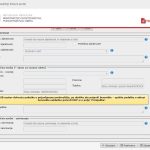The information provided here is for general informational purposes only. If you require specific expertise on your current tax situation, please consult a specialized accountant or contact the Croatian Tax Administration.

Figuring out taxes can be notoriously confusing and frustrating. Image: Pexels
What is double taxation?
Briefly, double taxation is the imposition of taxes on the same income by multiple jurisdictions.
It takes on 2 forms:
- Corporate double taxation: Taxes are imposed on both profits and dividend payouts; or
- International double taxation: Taxing of the same income in the country where the income is derived, and by the country where the individual is now residing.
This article will focus more on the 2nd taxation form, international double taxation, and whether there are available relief mechanisms in place between Croatia and your country that mitigate this issue when it comes to your pension payouts.
All information presented in the following sections from the Croatian Ministry of Finance and Tax Administration.
Conditions for tax residency in Croatia
Tax residency status in Croatia is in line with the OECD model and is determined according to length of stay in the country annually. The conditions are as follows:
- If you reside in Croatia for 183 days or more out of the year, you are considered a tax resident
- If you own or lease property for a continuous period of 183 days in 1 or 2 calendar years, you are also considered a tax resident. It is not mandatory that you live on this property
- If you own more than 1 property in Croatia, the place where you spend the most time will be considered your place of residence
Tax treaties with Croatia

Double tax avoidance agreements. Image: Pexels
If you do qualify as a tax resident of Croatia, there may be Double Tax Avoidance Agreements (DTAAs) in place that outline your tax responsibilities. The Croatian Ministry of Finance outlines all countries that have standing agreements here.
These bilateral agreements do not completely exempt an individual from filing or paying taxes. Rather, they contain a series of articles that outline each country’s stand on income and capital taxes.
Specific articles, and thus tax conditions, differ depending on the agreement made between Croatia and the contracting country. Here are some examples from the agreements signed between Croatia-United Kingdom, and Croatia-Canada.
United Kingdom (UK) and Northern Ireland (NI)
Croatia and the UK and NI established a DTAA in 2016. As a retiree of either the UK or NI, Article 17(1) of the agreement specifically outlines that if you are a UK citizen but reside in Croatia, pensions and other similar remunerations (e.g. annuities) are only taxed in Croatia.
However, in the case of a lump sum payment derived from a UK pension scheme, this amount will be subject to taxes in the UK, and only in the UK.
If you’re unsure of whether the income you’re receiving is considered a pension, the agreement defines pensions as financial vehicles registered under Part 4 of the Finance Act 2004.
You are also obligated to declare foreign income to the Croatian Tax Administration even if you have already paid taxes abroad.
Canada
Croatia and Canada established a DTAA in 2000. According to Article 18, taxes on pensions and annuities may be levied by both Canada and Croatia, but with limitations. Article 18(2) states that the first CAD$12,000 or the equivalent amount in Croatian kuna is tax exempt. Taxes levied on the excess amount should not exceed 15%.
Canadian annuities paid out to a retiree residing in Croatia may also be subject to Canadian taxes, capped at 10% of the portion that is subject to taxes. This limitation does not apply to lump-sum payments arising on the surrender, cancellation, redemption or sale of an annuity.
Types of pensions that will either be taxed by Canada or Croatia include war pensions, social security and alimony.
Citizens of Canada who receive a pension but reside in Croatia are not obligated to report it to the Croatian Tax Administration. Due to international data exchange between the countries, the Croatian Tax Administration can obtain necessary information directly from the Canadian Revenue Agency.
What if Croatia has no double tax avoidance agreement (DTAAs) with my country?
In the countries where there is no DTAA with Croatia such as Australia and the United States (U.S.), on top of being taxed by your country Croatia will also levy taxes on global income which may include pensions and capital earnings.
The thresholds for Croatian income tax are:
- 20% for up to 360,000 kuna (€47,804) annually
- 30% for more than 360,000 kuna annually
So, what does this mean for those wishing to retire in Croatia? Let’s consider American citizens wanting to retire in Croatia.
Example
Although negotiations between the two countries have been going on for over 25 years, Croatia is still the only European Union nation that does not have a DTAA with the U.S.
This means that depending on where you receive your pension from, such as social security, 401(k)s, Roth accounts, private pension plans or even passive income, these distributions may be subject to tax from both the IRA as well as Croatian tax administration.

Bob. Image: Pexels
Let’s consider Bob. Bob is single, aged 65, and is thinking of retiring in Croatia. He has made steady pre-tax contributions to his 401(k) over the years and now has US$750,000. This is also Bob’s only source of pension. He decides to withdraw US$25,000 annually for his retirement in Croatia, which will be considered his retirement income.
Assuming as of 2022, he is filing taxes under “Single Filer”. The IRA will impose a 12% tax on Bob’s ‘income’ of US$25,000, which means Bob will pay a total of US$3,000 to the IRA. Meanwhile, the Croatian Tax Authorities will further impose a 20% ‘income’ tax on US$25,000, amounting to US$5,000 in taxes. This brings the total amount of taxes on Bob’s pension to US$8,000 annually and he ‘pockets’ US$17,000.
You can also use the IRS’s Interactive Tax Assistant to help you determine whether some of your income may be eligible for the exclusion.
Although taxes may put a dent in your pension payout, do weigh the benefits of living in Croatia without necessarily having to make significant lifestyle changes. Or better yet, make full use of the 90-day visa free travel to do a “trial run”, and experience a slice of what retirement may look like here.
Check out the first part of the retiring in Croatia as a non-EU national series HERE.









